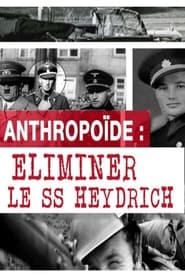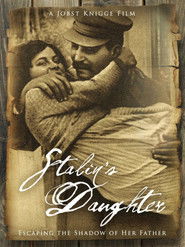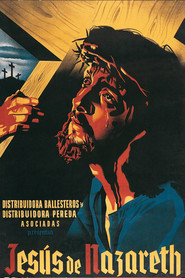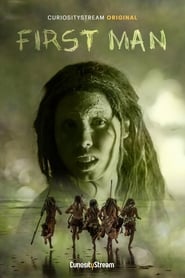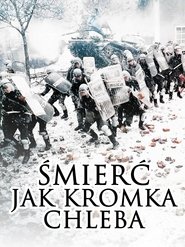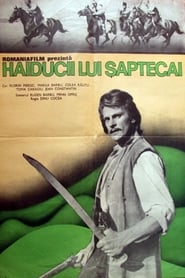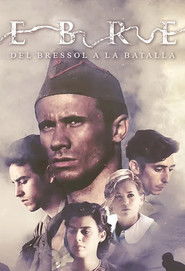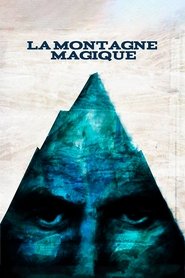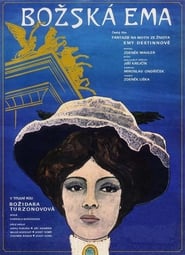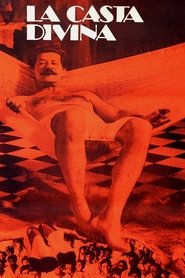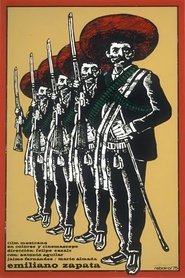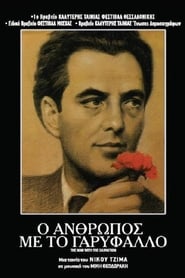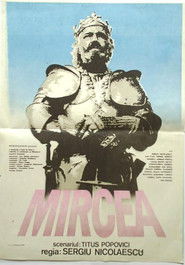Top Rated History Movies - Page 173
-
Operation Anthropoid - Eliminate the SS Heydrich
2014
star 6.8A documentary looking at Operation Anthropoid during World War II. -
Stalin's Daughter
2015
Stalin's Daughter
2015
star 6.6A shock wave started as Stalin's daughter Svetlana Iosifovna Alliluyeva fled to the West. During her childhood, she remained at the center of power and was her father's favorite child. However, her life was overshadowed by death and violence. Her mother and brother died, family members were murdered, and her partner was exiled by Stalin. The Iron Curtain was an obstacle in her family dream. This documentary shows for the first time interviews with friends and relatives, exclusive photos and documentation, as well as the last and never broadcast interview with Alliloejeva. -
Jesus of Nazareth
1942
Jesus of Nazareth
1942
star 7.7The biblical story of The Messiah from his baptism through his crucifixion. -
First Man
2017
First Man
2017
star 8.3Man’s early ancestors set off to conquer the world, to explore the unknown, to adapt to every environment. And one day, to conquer fire – a discovery that made them invincible. They built shelters. They transformed their environment. But still this did not slake their thirst for more. They sought to fathom Nature’s mysteries. They invented stories to explain the inexplicable. Now, they are Men. Here, for the very first time in television history, is the saga of our origins, told through the story of one single family - an epic journey upon which the latest scientific discoveries shine an exciting new light. -
Death as a Slice of Bread
1994
star 7.3Katowice, the night of December 12-13, 1981. Military units occupy strategic points in the city. A group of Zomovniks, smashing union security, drags the chairman of the Company Commission of the NSZZ Solidarity in the Wujek mine out of his apartment. The news quickly spreads to the miners. Initially surprised, they soon react with spontaneous protest. On December 14, a strike breaks out at the plant. The miners demand the lifting of martial law and the release of the chairman. When negotiations fail, the army, ZOMO and militia storm the mine. -
The Outlaws of Sevenhorses
1971
star 6.8The third movie in the Haiducii series, set in Muntenia during the Phanariote period. Lady Ralu needs a million galbeni to buy a jewelry collection from Vienna. In order to satisfy her desire, the Phanariot ruler institutes the "birul vacăritului" (the tax on the cowherd), impoverishing the people. The band of outlaws led by Anghel Șaptecai, after the death of Captain Amza, tries to recover the galbeni, forcibly taken from the tormented people. In the end, captain Mamulos catches Anghel and sends him to the pit. -
Pétain
1993
Pétain
1993
star 6During second world war,Philippe Pétain gets absolute powers.The war ends with the arrival of allied forces by Petainism has not been put on trial. -
Winston Churchill: A Giant in the Century
2014
star 8A new look at the public and private life of one of the most important statesmen in the history of Europe: Winston Churchill (1874-1965), soldier, politician, writer, painter, leader of his country in the darkest hours, winner of the Nobel Prize in Literature, a myth, a giant of the 20th century. -
Hakuouki: Warrior Spirit of the Blue Sky
2014
star 6.4The second part of the retelling of the first and second seasons of the anime. -
Ebre, del bressol a la batalla
2016
star 5In 1938 the Spanish Civil War has worn both armies and destroyed the mood of the people of both sides. The differences between national Republicans however are revealing: The fascist side has the unconditional support of arms and men facilitated by Hitler and Mussolini while the Republican army is ignored by a Europe more concerned of a possible World War than the fate of Spain. Thousands of young people between 17 and 18 rows are called by the republican army. These are the main characters, four young for whom the Battle of the Ebro will be the first direct contact with the war. This film tells the story of these young people forced to leave behind innocence and into whistling bullets. -
The Magic Mountain
2015
The Magic Mountain
2015
star 6.6The film investigates the adventures of mountain climber and photographer Adam J. Winkler, who fought in Afghanistan with the Mujahideen against the Soviets in the 1980s. The director employs a highly original artistic technique involving animated collage of period materials. -
The Divine Emma
1979
The Divine Emma
1979
star 5.9The opera lady singer Ema Destinnová is in all her splendor at the American stages. But in Europe there rages war and she decides to return home to Bohemia. -
La casta divina
1977
La casta divina
1977
star 6.6Chronicle Caste War in Yucatan held in the nineteenth century, where the land and the people were the property of the landowners, who called themselves " divine caste ". On one hand, General Salvador Alvarado organized the revolution; on the other, the landowners hire Colonel Ortiz Argumedo to organized the defense of their autonomy. Don Wilfrido, one of the masters, do not hesitate to send his son to fight to maintain their wealth and privileges. -
The Dream of Russia
1992
The Dream of Russia
1992
star 6.2Sumptuous filming of the journey of a shipwrecked Japanese expedition from the Pacific Ocean across Siberia to the court of Catherine the Great of Russia. A Russo-Japanese co-production of a unique event in history which was the hit of Cannes and other film festivals but did not receive wide distribution despite its huge scope, high production values, and very human story of culture clash. -
Beyond My Grandfather Allende
2015
star 7.1Marcia, granddaughter of Salvador Allende, the first democratic socialist president who was overthrown by the Army in September 1973, seeks to reconstruct the personal and familiar image of her grandfather, buried by his historical person, her exile and the family pain. -
Living Dangerously
1987
Living Dangerously
1987
star 6.8In 1950s Havana, a romance blooms between two young revolutionaries whose clandestine printing press publishes pamphlets meant to stir up rebellion against the dictatorship of Fulgencio Batista. As their popularity grows, so, too, does their revolutionary zeal and their desire to mobilize other urban guerilla units. -
Emiliano Zapata
1970
Emiliano Zapata
1970
star 6.2This is the story of a man, Emiliano Zapata, and of a revolution, the Mexican Revolution. -
The Man with the Carnation
1980
star 5.7The story of Nikos Belogiannis member of the communist party and officer of Ellas that has come back to Greece only to get arrested, tried for espionage on behalf of Russia and executed. -
Proud Heritage
1989
Proud Heritage
1989
star 7After 1394 King Mircea the Elder, ruler of Wallachia, ponders the eventual consequences of a military alliance with the Poles versus one with the Turks. -
Ballad of Khevsureti
1966
Ballad of Khevsureti
1966
star 5.5When Imeda’s father is killed in a blood revenge accident, the family moves him to the city where he is sheltered at his father’s friend. After fifteen year he gets back to Khevsureti. A talented painter, he spends most of his time doing sketches of nature and people. There he meets a local beauty, Mzekala and fells in love with her but finds out that Torghva is also in love with her. Enraged by Imeda’s impudence Torghva calls him for a sword fight and is killed by Imeda. To avoid another round of blood revenge, the villagers let Imeda and Mzekala out of the village but someone who wants Imeda’s blood finds it out and follows them.
 Netflix
Netflix
 Amazon Prime Video
Amazon Prime Video
 Apple iTunes
Apple iTunes
 Apple TV Plus
Apple TV Plus
 Disney Plus
Disney Plus
 Google Play Movies
Google Play Movies
 Paramount Plus
Paramount Plus
 Hulu
Hulu
 HBO Max
HBO Max
 YouTube
YouTube
 fuboTV
fuboTV
 Peacock
Peacock
 Peacock Premium
Peacock Premium
 Amazon Video
Amazon Video
 The Roku Channel
The Roku Channel
 AMC+
AMC+
 Kocowa
Kocowa
 Hoopla
Hoopla
 The CW
The CW
 Vudu
Vudu
 Starz
Starz
 Showtime
Showtime
 PBS
PBS
 Pantaflix
Pantaflix
 FXNow
FXNow
 Tubi TV
Tubi TV
 Kanopy
Kanopy
 Comedy Central
Comedy Central
 Crunchyroll
Crunchyroll
 Microsoft Store
Microsoft Store
 Redbox
Redbox
 Sun Nxt
Sun Nxt
 ABC
ABC
 DIRECTV
DIRECTV
 Crackle
Crackle
 Fandor
Fandor
 Plex
Plex
